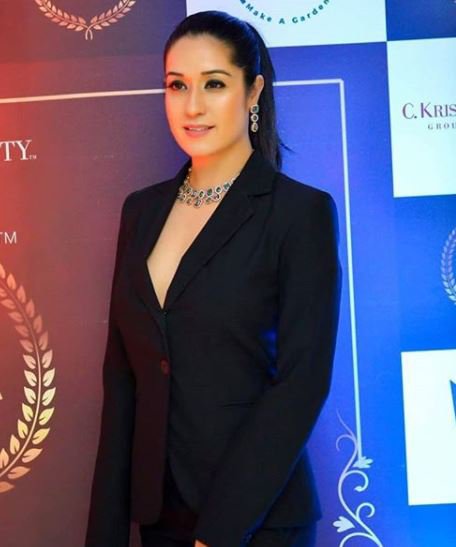Role of a Woman as an Entrepreneur: Boss Women you Need to know About
6 minuteRead

“No country can ever truly flourish if it stifles the potential of its women and deprives itself of the contributions of half its citizens." – Michelle Obama
Over the past few decades, the role of women in our society has drastically changed for the better. Gone are the days when women are viewed with the “damsel in distress” image. Today, women are given the reputation they deserve by breaking shackles of discrimination and gender inequality. In a majority of fields, they are outpacing their male counterparts to occupy positions of repute. Age-old traditions and stereotypes which were prevalent in society decades ago are slowly being done away with.
In today’s times, educated women are not limited to the four walls of their home. They are not left to stay home and nurture children. Instead, they are marking their identity across every domain and industry. However, there is still a long way to go to achieve equal rights as certain mindsets are still deep-rooted in Indian society.
According to a recent report, India has 13.5-15.7 million women-owned enterprises, therefore representing 20% of the total enterprises. There are no two thoughts about the fact that women entrepreneurs are the backbone of our society. With their perseverance and determination, they have the ability to strengthen the country socially, culturally and economically.
Understanding the Concept of Women Entrepreneurs
According to the Government of India, Women Entrepreneurs are defined as the women or group of women who initiate, organise and operate a business enterprise.
Though women entrepreneurship in India has changed over the years, the concept is not new. Even in ancient times, we have seen women spearheading businesses whether it’s running a beauty parlour or taking tuitions for kids. Earlier, women had to find contentment in such small, informal work-from-home businesses. However, things have changed today. They are achieving great feats in every sphere and have actually become forerunners of change. Here are few reasons why India needs more female entrepreneurs:
- Reducing Gender Inequality: Despite the efforts of making men and women equal socially and economically, there is still a gap that needs to be filled. With women entrepreneurs coming into the forefront, other women too are inspired to start businesses of their own. This further leads to more job opportunities for women which also reduces the gender gap in the workforce.
- Catalysts of Social Change: If there’s any way in which women can be uplifted in our country, the answer is entrepreneurship. Female entrepreneurs are forerunners of tremendous social change. In fact, there are many women in India who have successfully established organisations to empower women living in impoverished conditions and boost their overall self-esteem. They focus on improving their lives by providing them with better opportunities.
- Promoting Women Safety: Studies reveal that companies headed by women often have a better work culture. Every woman’s interest is taken care of and there is a higher level of transparency. Also, safety is a topmost concern in any organisation. Women-led companies are more sensitive to safety issues. They deploy adequate measures and policies to safeguard their human assets.
Successful Women Entrepreneurs in India
Simone Tata

Source: https://images.app.goo.gl/78QU1UdcTmVd2LT3A
French by birth and educated in Switzerland, Simone Tata is an Indian business woman you need to know about. During a time when women were confined to their homes, Simone strived to move ahead with flying colours. She moved to India in 1955 and became the managing director of Lakme in 1961. That is when a new phase of entrepreneurship ushered into Simone’s life. In 1982, she was promoted to the post of Chairperson of Lakme. She was also appointed to the board of Tata Industries.
After Lakme was sold to Hindustan Lever Limited in 1996, Simone became the chairperson of Trent Limited (Westside).
From the beginning, Simone carried several entrepreneurial traits. She was very keen to understand the core concepts of marketing. Even during the establishment of Westside, she was personally involved in understanding what would attract the Indian customers the most. She even made several visits to European countries to understand the latest trends in fashion, home décor, and accessories. Her aim was to bring the same international flavour and essence to the local grounds of India.
Chinu Kala

Source: https://images.app.goo.gl/Q4G1oteyUFXsZUGV9
Chinu Kala is another role model for women entrepreneurs. Based out of Mumbai and married in Bangalore, this young woman was born into a middle-class family. She left her home at the age of 15 to pursue her dreams. At that time, her future was bleak and uncertain. She went door-to-door selling knives and coasters and made only Rs. 20 per day. People would often slam the door on her face. Today, her fashion accessories brand, Rubans, makes close to Rs. 7.5 crore annually. However, none of it came easy. She worked immensely hard to reach where she is today.
Her entrepreneurial journey began when she specialised in Corporate Merchandising for a company. During the course of her career, she was exposed to practical lessons and understood a lot about consumer demands. That is when she realised there is a huge gap in the Indian jewellery segment.
She started Rubans Accessories in Bangalore with a bootstrapped capital of Rs. 3 lakhs in a 70 square feet kiosk. Five years later, the company recorded a turnover of Rs. 7.5 crores.
Despite facing multiple adversities, Chinu believed in her dreams and became a successful entrepreneur. Her jewellery brand was also selected for the Myntra Accelerator Programme, which invests in emerging Indian fashion brands.
Sujata Chatterjee

Source: https://images.app.goo.gl/fMtzc8aCdTByWfiH9
While there are women entrepreneurs, there are also women social entrepreneurs who are making initiatives towards social change. Sujata Chatterjee is a Kolkata-based entrepreneur who quit her corporate job as a salesperson in the quest to make a difference. She started her social venture, Twirl.Store in 2017.
The aim of the organisation was to reduce cloth wastage, conserve natural resources and encourage women empowerment. Appalled by the fast-fashion trends and the perils it has on the environment, Sujata decided to bring about a positive change. Her organisation encourages people to send in clothes they no longer need. They upcycle these products into accessories and other clothing items, and distribute them in slum areas of Shantiniketan and Sundarbans of West Bengal. Each time someone sends their clothes, they receive reward points which can be redeemed on the Twirl website.
Besides contributing towards the social and environmental good, Sujata also heads an all-women organisation that consists of eight core members and forty other women on the outskirts of the city.
Aditi Gupta

Source:https://www.femina.in/trending/achievers/aditi-gupta-co-founder-of-menstrupedia-on-trumping-taboos-138867.html
In Indian society, menstruation is considered a major taboo. To put an end to this, women entrepreneur, Aditi Gupta, founded Menstrupedia, a platform that aims at educating the society about menstrual health and hygiene.
As a child, Aditi wasn’t taught much about menstrual hygiene. She got her period at the age of 12 and was asked to follow diverse traditions by her family such as sleeping in a separate area, cooking her own food, not worshiping Gods, and washing her own clothes. She wasn’t even allowed to buy sanitary napkins as her family felt it would be the loss of their self-respect.
At the age of 15, Aditi studied at length the subject of menstruation. She was largely disappointed by the lack of awareness and consciousness around such a crucial topic.
After she graduated from National Institute of Design in Ahmedabad, she and her husband decided to create a business that would break the shackles associated with menstruation in India.
She created a Hindi comic book that demonstrated and humanised girls concerning menstruation. With the support of doctors and younger women, she created Menstrupedia. Besides being a one-stop guide towards menstruation, it also has a whole lot of comic books, blogs, and FAQs.
Though Aditi’s work was shunned initially due to her subject choice, she was later accredited by several organisations. Her Menstrupedia comic was even shipped to South America and the Philippines.
These are only a few women entrepreneurs that have paved the way for their peers and shown the world how things are done. Owing to the popularity of social networks, online selling and social media, a lot of women are seeking inspiration and making it big in their respective fields.
As APJ Abdul Kalam once said, "Empowering women is a prerequisite for creating a good nation”.
Write, Record and Answer! Consume Unlimited Content! All you need to do is sign in and its absolutely free!
Continue with one click!!By signing up, you agree to our Terms and Conditions and Privacy Policy.










